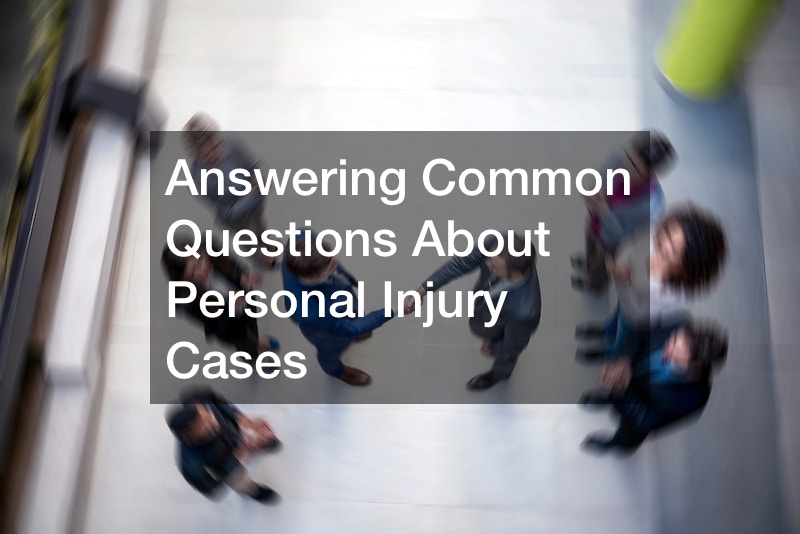
Answering Common Questions About Personal Injury Cases

Some personal injuries are easier to diagnose than others. Many injuries that frequently occur after automotive collisions are complicated in that way. Getting whiplash is common, especially if the back of your car is hit during the accident. Treating whiplash isn’t always easy. Even diagnosing whiplash is harder than it seems. It’s an injury that is discussed frequently in the context of personal injury law. A patient who has an injury like that may still be able to prove that it was a severe injury, which is certainly true for many whiplash cases.
Getting certain forms of nerve damage in automotive accidents is also relatively common. The consequences of damaged nerves can be substantial. Some people might find it more difficult to walk or to move their hands after sustaining injuries like this. In personal injury law 101, it’s often said that a claim is easier to make if the injury in question is serious or significant enough for the patient.

Even patients who aren’t sure that they have injuries in that category can look for personal injury quotes. Personal injury victims can be genuinely affected by lots of very different injuries, including psychological ones. Someone with a strong personal injury lawyer reputation can offer assistance.

If you were recently injured as a result of negligence, it’s important to know your rights. Navigating through the perils of personal injury laws can be overwhelming, but hiring a reputable and highly qualified personal injury lawyer is the best way to receive everything you’re entitled to. Here are some answers to common questions about personal injury cases.
- What qualifies as a personal injury?
Munley.com defines a personal injury as a “serious harmful act to a person or persons as a result of someone else’s negligence.” These accidents can fall into a number of different categories, such as auto accidents, product liability, medical malpractice, premises liability, pharmaceutical negligence, workplace accidents and injuries, wrongful death, birth injuries, child abuse, and more.
- How will I know if I have a true personal injury case?
The key to identifying whether or not an injury or accident classifies as a personal injury case is negligence. You’ll have to be able to prove that an injury was sustained or an accident occurred as a direct result of someone’s actions or lack of actions. Luckily, most law firms specializing in personal injury cases offer free consultations, so you’ll have plenty of time to discuss the case details with a lawyer, who will then make an educated decision as to whether or not you have a true personal injury case.
- Who is responsible for medical bills?
This is an answer that varies on a case by case basis. Between your own medical insurance and that of the at-fault party’s, your medical bills should be almost covered in full. Plus, you may be entitled to additional compensation depending on the specific details of your case. Overall, finding a personal injury law firm to talk through the details of your case is the best way to learn what exactly you may be entitled to.
Ultimately, these are just a few answers to common questions regarding personal injury cases. About 52% of personal injury cases relate to motor vehicle accidents, but whichever type of personal injury you’re dealing with, finding the right personal injury law firm is the best first step you can take for yourself. nike air max 1 nike air max 1 nike air max 1 nike air max 1 nike air max 1 nike air max 1 nike air max 1 nike air max 1